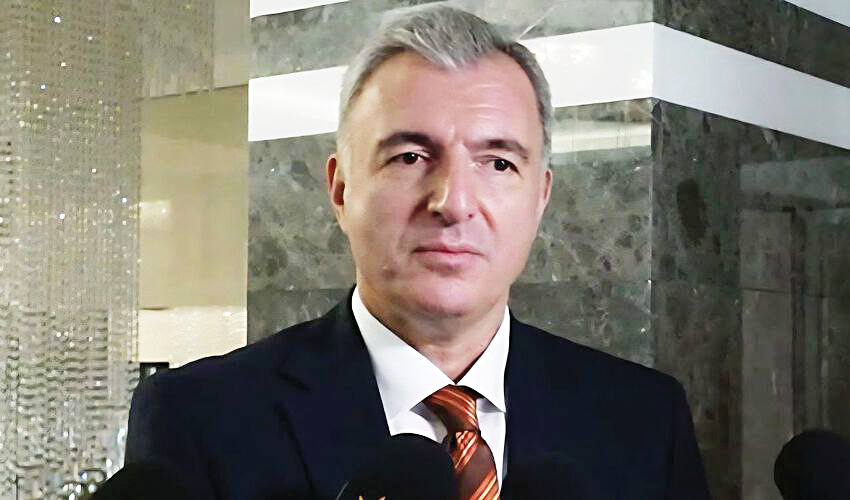
Kenneth Rogoff
While the dollar will almost certainly remain the world’s main currency for at least a couple more decades, it is still likely to bounce back a few positions. Wait for it: in the legal economy, the yuan and the euro will soon encroach on the dollar’s status. In the shadow economy, which accounts for roughly a fifth of global GDP, cryptocurrencies will do the same. If market share shrinks, interest rates on long-term dollar debt will rise, and the effectiveness of U.S. financial sanctions will be undermined – on top of other problems.
Even before Trump, the dollar’s global dominance was steadily melting away. There are many measures of the dollar’s influence on the global economy: central bank reserve assets, the currency of trade accounts, and the face value of international borrowing, for example. But the most useful of these is the currency that central banks prefer as a reference or reference for the exchange rate. Given that domestic banks have intimate knowledge of the inner workings of their economies and a good sense of how exchange rate fluctuations affect them, the choice of a reference currency as an “anchor” can serve as a measure of dominance.
So, according to this measure, the dollar’s dominance peaked around 2015, after which China gradually began to make its currency more flexible. The change took a long time to prepare for: an economy as large as China’s experiences very different business cycles than the U.S. economy. And Beijing has no reason to force its central bank to dance to the tune of the Federal Reserve. U.S. sanctions against Russia, including the freezing of more than $300 billion in Moscow’s central bank reserves, have only exacerbated China’s desire for disengagement, given the risk of retribution over Taiwan.
As China’s currency regime has evolved, so have the regimes of its neighbors – for most of them, Beijing is no less an important trading partner than Washington. Since Asia accounts for about half of the “dollar bloc” (economies that rely on the dollar to manage their own currency exchange rates), a gradual disengagement has already begun. Europe is also irritated by the power of the dollar, which allows America to launch its tentacles everywhere. Brussels’ moves to create a digital central bank currency should be seen in part as an attempt to establish more effective competition with the dollar.
The main challenges to the dollar’s dominance, however, come from within – most notably the unstable trajectory of U.S. debt. Payments have already come under strain due to the imminent end of a period of extremely low long-term interest rates. If Trump’s chaos undermines the dollar’s so-called “exorbitant privilege” – the discount on borrowing that America’s government enjoys thanks to the superiority of its currency – rates will rise even further.
It wasn’t Trump who caused the dollar’s decline, but he will surely accelerate it steeply. In addition to overturning global trade, in which America has hitherto been the clear winner, he is assiduously undermining almost every other pillar of dollar dominance. He has rightly curtailed illegal immigration, but he doesn’t seem to be thrilled about legal immigration either. It feels like he’s obsessed with stopping research at the nation’s top universities, which have long been a major source of innovation and growth.
But above all, dollar exceptionalism weakens Trump’s challenge to the rule of law. The hitherto unshakable belief in the rule of law in the U.S. has nevertheless convinced investors that U.S. assets are among the safest in the world. This applies not only to Treasuries, but also to stocks, corporate bonds, real estate and more. Prices rise and fall, but what you own can’t be taken away from you. Now, if Trump’s quest to greatly expand presidential power succeeds, foreign holders of U.S. assets will question their safety.
Americans love to emphasize how good the U.S. system is, as the dollar has consistently defeated one rival after another – from the Soviet Union to Japan to Europe, and now perhaps China and cryptocurrency. But they forget how many fortunes have befallen America along the way. There was, among other things, the collapse of the Soviet economic reforms of the mid-1960s, which, with a favorable outcome, could have turned the country into something like today’s China; Japan’s mistake in buying into the 1985 Plaza agreement, when its monetary policy and financial authorities were not ready for the leap; and, finally, the eurozone’s premature decision to include Greece.
This time, unfortunately, that is not the case. Unless Trump curbs his erratic trade policies, it looks like America’s luck will turn away.
Kenneth Rogoff,
former chief economist at the IMF, now a professor of economics and public policy at Harvard University.
© The Economist
https://www.economist.com













